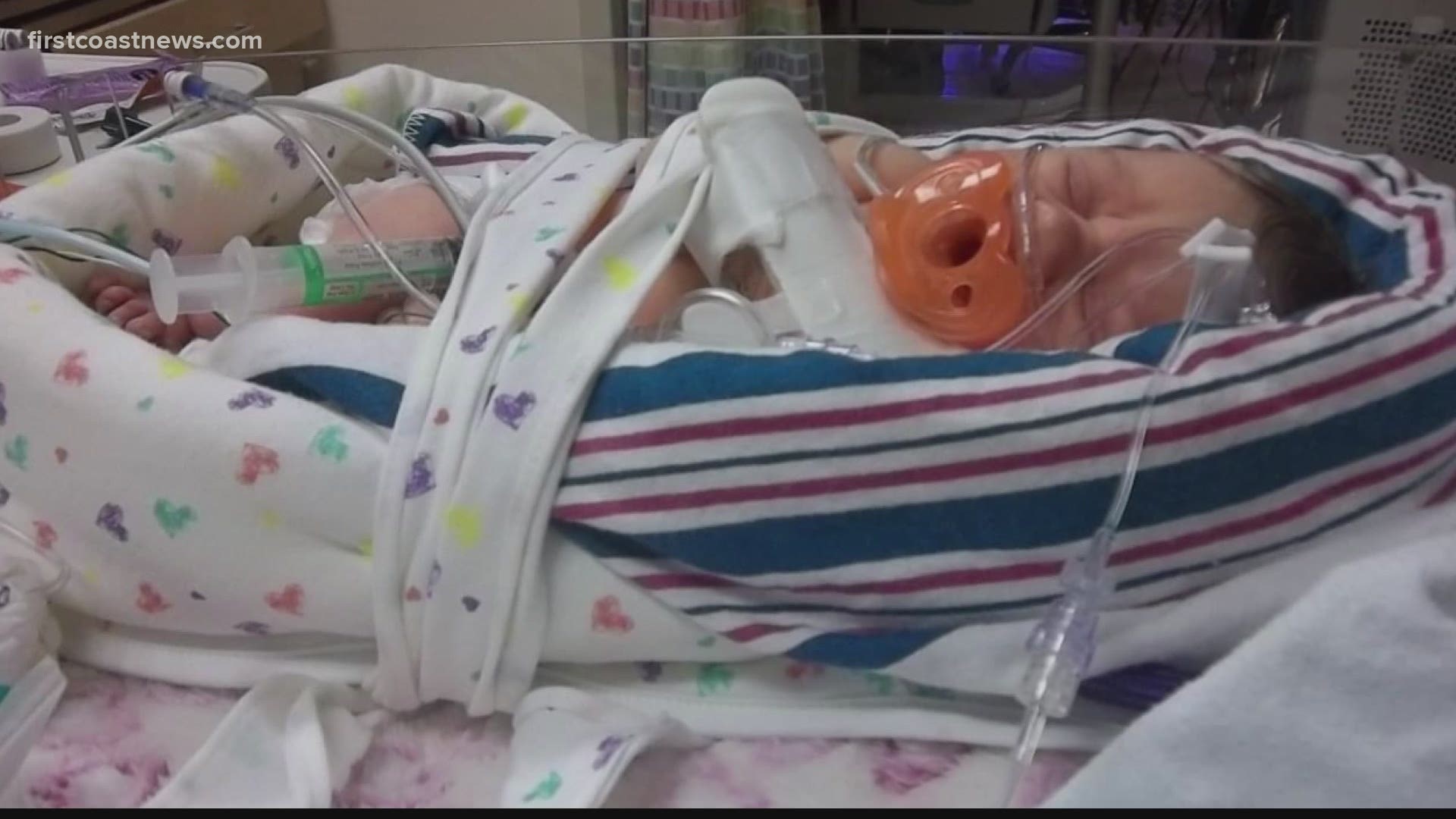JACKSONVILLE, Fla. — February is American Heart Month drawing attention to acquired heart disease and what adults should look out for. The second week of February is special though.
It’s Congenital Heart Defect Awareness week. This type of heart disease is not acquired.
Congenital means you are born with it. About 1/100 babies are born with CHD.
Tina White was pregnant with her 7th child when she found out her unborn baby had something wrong with her heart.
“If I can get my head wrapped around something, I can handle just about anything," White said. "I’ve just got to be mentally prepared for it.”
Not to spoil the ending, but Gracey is two years old and doing well. The terrible twos are cherished when the first few years of your child’s life is spent in the operating room and hospitals.
Gracey has Tetralogy of Fallot which among many things caused oxygen-poor blood to flow out of the heart into the body causing her to turn blue. She had her first open heart surgery at 6 months old. Then another a year later.
“Medical advancement has come so far. It’s not nearly as terrifying as it would’ve been 10 years ago," White said.
She knows because 10 years ago, her other daughter Christene Marrero had a baby. Sophia was also born with CHD, but Marrero didn’t find out until Sophia was born.
“I started trying to nurse her and she turned completely blue," Marrero said.
Sophia’s had three open-heart surgeries. Her first was at seven days old. Today she is 10 years old and "typical".
“You would never know. It doesn’t define her," Marrero said. "You would never know she had it. She’s so typical. She plays… you shouldn’t be scared even though it is scary.”
I am also one in 100. I was born with Tetralogy of Fallot. I’ve had two open-heart surgeries: one in 1995, another in 2010.
We all have years of research and science to thank because just decades ago, babies born like us didn’t live long. There’s a new population of millions of adults with CHD creating this entirely new specialty in cardiology.
Dr. Thomas Moon with Wolfson's Childrens Hospital treats patients with CHD. He says hearing something is wrong with your child is scary, but he says it is no longer a death sentence.
“It is a new field in that 20-30 years ago there weren’t that many adults with congenital heart disease," Moon said. "But as a testament collectively of our ability to take care of young kids and at getting them through those childhood years and into the adults years, there is this booming population of adults with congenital heart disease.”
Dr. Moon was able to diagnose Gracey White with CHD before she was born. Prenatal diagnosis is something he says is becoming more common.
Dr. Jose Ettedgui has been treating CHD patients in Jacksonville at Wolfson's for about 20 years. He’s watched science improve the lives of kids like Gracey.
“In the 70s, lesions and the type of surgery that his patient has had an surgical mortality that was 20-25 percent," Ettedgui said. "Where as nowadays a baby with tetralogy survival rate is 99 percent or better.”
Heart defects are the most common type of birth defect. CHD patients require lifelong care with cardiologists and often surgeries throughout their lifetime.

